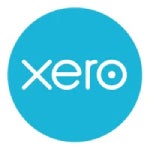[ad_1]
- Best overall accounting software for consultants: QuickBooks Online
- Best for solo practitioners: FreshBooks
- Best for large consulting firms: Xero
- Best software ecosystem for consulting firms: Zoho Books
- Best for consultants with few clients: Wave
- Best ERP for consultants: NetSuite
The best accounting software for consultants must have features that can help consultants manage project income and costs, track billable hours and expenses and generate useful reports for performance evaluation. Since consultants provide a service, those are the three major features we look for in accounting software. However, additional features, such as integration options, cloud accessibility, and client management, are also considered if they improve the overall experience of its users.
Top accounting software for consultants comparison table
Project accounting and time tracking features help consultants track billable time and expense. With customized reports, users can assess project performance, cost efficiency and income opportunities.
| Software | Starting price with project & time features if available | Number of users | Project accounting | Time tracking | Customized reporting | |
|---|---|---|---|---|---|---|
| QuickBooks Online | $90 per month | 1 to 25 | Yes | Yes | Yes | Visit QuickBooks |
| FreshBooks | $60 per month | 1 only | Yes | Yes | Yes | Visit FreshBooks |
| Xero | $78 per month | Unlimited | Yes | Yes | Yes | Visit Xero |
| Zoho Books | $70 per month | 1 to 15 | Yes | Yes | Yes | Visit Zoho Books |
| Wave | Free | Unlimited | No | No | Limited | Visit Wave |
| NetSuite | Custom priced | Custom | Yes | Yes | Yes | Visit Netsuite |
QuickBooks Online: Best overall accounting software for consultants
QuickBooks Online is our best small-business accounting software because of its robust features in daily accounting and reporting. For consultants, the best plan is QuickBooks Online Advanced because it is good for 25 users and has all the features QuickBooks Online offers. Consultants will like class and location tracking, project tracking, data sync with Excel for complex calculations and workflow automation.
Why we chose QuickBooks Online
We chose QuickBooks Online as our best overall pick because it has all the features consulting firms would need for accounting. It is flexible, accessible to independent bookkeepers and ProAdvisors and popular in the United States. QuickBooks also has a lot of integrations with third-party apps, making it an easy-to-implement software.
Pricing
- Simple Start: $30 per month for one accounting user.
- Essentials: $60 per month for three accounting users.
- Plus: $90 per month for five accounting users.
- Advanced: $200 per month for 25 accounting users (recommended for most consultants).
The Essentials plan and higher includes unlimited time-tracking-only users.
Features
- Revenue recognition: Consultants with clients on retainers will like Advanced’s revenue recognition features. Recurring fees from these clients will be recognized as revenue automatically and the bookkeeper need not adjust these every month manually.
- Class and location tracking: If you want to track a specific service line in your consulting business, you can use classes and locations for this one.
- Excel data sync: Advanced can send data to Microsoft Excel seamlessly, so you can perform advanced and complex calculations for data analysis. And if your consulting firm uses Excel’s Data Analysis Toolpak, a direct connection from QuickBooks Online will make it easy for you to collect data and perform regression analysis, create correlation matrices or generate descriptive statistics.
Pros
- Offers you access to a vast network of ProAdvisors.
- Includes a built-in time tracker.
- Has an excellent custom reporting tool.
- Includes unlimited time-tracking users.
Cons
- Has no built-in feature for detailed client tracking.
- Requires Advanced subscription to maximize all features for a consulting business.
- Has limited accounting seats — with no option to add more seats.
For more information, read our QuickBooks Online review.
FreshBooks: Best for solo practitioners

FreshBooks is accounting software designed with self-employed individuals in mind. Self-practicing consultants can use it for invoicing, billing, time tracking and project management. Consultants can also track project profitability and create dynamic email templates. The platform even makes it convenient for consultants to get paid because of the checkout links within customer invoices.
Why we chose FreshBooks
We chose FreshBooks because of its simplicity and interface. It’s not as intimidating to use as the other providers on this list, and consultants without accounting software experience can learn and use FreshBooks easily. It also accepts online payments, making it easy for clients to pay and convenient for consultants to collect payments.
Pricing
- Lite: $19 per month for one user only.
- Plus: $33 per month for one user only.
- Premium: $60 per month for one user only (recommended for consultants).
- Select: Custom priced.
If you need more seats, you can add $11 per user, per month, to your bill.
Features
- Project tracking: FreshBooks’ project tracking tools let you track billable time, enter billable expenses, manage project costs and compare actual vs. budgeted costs for performance evaluation.
- Receipt capture: Consultants can capture receipts easily using their smartphones through the mobile app. FreshBooks can read the data automatically and enter it into the system. This feature comes in handy for consultants who work on the go.
- Recurring invoices: Recurring fees are common in the consulting industry, especially if the consultant is on call. If you have recurring clients, FreshBooks’ recurring invoices feature sends invoices to these clients automatically. This feature can help you save time and focus on more important tasks.
Pros
- Offers professional-looking invoice designs and dynamic email templates.
- Has a built-in time tracker for tracking billable hours.
- Can add an accountant at no additional cost.
- Is easy to use.
Cons
- Charges additional fees per added user.
- Includes only one user in all plans.
- Requires bank feed connection to use banking features.
- Needs employees to be added as additional users to track time.
For more information, read our FreshBooks review.
Xero: Best for large consulting firms

Xero is one of the leading accounting software providers and is second to QuickBooks. What makes Xero attractive is its affordable pricing, which includes unlimited users. Its Established Plan — the highest plan — contains all the features Xero offers but is priced lower compared to QuickBooks Online’s Advanced tier. In Xero, you can also track time, send invoices, receive bills and reconcile bank accounts.
Why we chose Xero
If you’re a consulting firm that doesn’t want limits on the user count, Xero is our best pick. For only $78 per month, you get all of Xero’s features — plus unlimited seats. You can set their limits and enable users to manage some, or all, of Xero’s capabilities. If you’re a consulting firm with more than 30 users who need access to the platform, we recommend Xero for its affordable price and extensive accounting features.
Pricing
- Early: $15 per month for unlimited users.
- Growing: $42 per month for unlimited users.
- Established: $78 per month for unlimited users (recommended for consultants).
Features
- Project financial dashboard: Xero’s financial dashboard provides a quick overview of project numbers to help managers and project owners see real-time information without generating a report.
- Project tracking: Tracking project time and cost is easy in Xero’s Project Tracker. This module of Xero gives project managers a central hub for managing project costs and progress. Consultants can use this module to track consulting costs, revenues and other client billables.
Pros
- Includes unlimited seats in all plans.
- Has excellent project accounting features.
- Offers more affordable monthly rates than QuickBooks.
- Lets users track time using the mobile app.
Cons
- Limits the number of bills and invoices in the Early plan.
- Is not as popular as QuickBooks in the U.S.
For more information, read our Xero review.
Zoho Books: Best software ecosystem for consulting firms

Zoho Books is a rising competitor of QuickBooks in the U.S. It is also a powerful accounting software with robust features and an outstanding mobile app. Its flexible paid plans and free option make it easy for small consulting firms to grow and scale with it. The software features customer portals, advanced analytics and advanced report customization that aren’t present in QuickBooks.
Why we chose Zoho Books
We chose Zoho Books for consulting firms that might be interested in the Zoho suite. Though the platform can be purchased standalone, getting Zoho One gives users access to all of Zoho’s integrated apps, such as Zoho Expense, Zoho Invoice and Zoho Inventory. It also has productivity apps, such as Zoho Writer and Zoho Sheets.
Consulting firms can benefit from Zoho One since it is a software ecosystem. This makes it an all-in-one solution for productivity management, work management, accounting and finance, document management and email hosting, to name a few.
Pricing
- Free: $0 per month for 1 user.
- Standard: $20 per month for 3 users.
- Professional: $50 per month for 5 users.
- Premium: $70 per month for 10 users (recommended for consultants).
- Elite: $150 per month for 10 users.
- Ultimate: $275 per month for 15 users.
You can add more seats at $3 per user, per month.
Zoho One’s pricing is as follows — and you don’t need to buy all your employees a license:
- All Employee Pricing: $45 per user, per month.
- Flexible-user Pricing: $105 per user, per month.
Features
- Customer portal: Consultants can create a portal per client and use it as a major communication channel for all things related to current and future projects. You can send estimates, quotes, invoices and documents in the portal. Clients also use this portal to update their personal information.
- Project management: In Zoho Books, the project management module can track time, manage multiple projects, track project expenses and add member roles for collaboration. This feature is further enhanced if the team utilizes the mobile accounting app for time tracking and receipt capture.
- Reporting and analytics: Consulting firms need custom reporting to track the performance of teams, projects and costs across multiple business areas. With Zoho Books, consultants can make special reports that will help with internal decision-making.
Pros
- Has an ecosystem of software that can enhance productivity.
- Offers flexible plans with multiple tiers.
- Has a free plan suitable for consultants new to the industry.
- Lets you add more users to each plan for an additional cost.
Cons
- Is not as popular as QuickBooks.
- Doesn’t have a vast network of advisors for assisted bookkeeping.
- Lacks project tracking in the Standard plan.
- Allows only paid users enter their own time.
For more information, read our Zoho Books review.
Wave: Best for consultants with few clients

Wave Accounting is a simple accounting solution for consultants who need to track only income and expenses. Its free plan is suitable for those with few clients and projects that don’t need complex tracking, especially if their engagements are fixed-fee since Wave can’t be used to track time. Consultants can create invoices, request and accept payments and capture receipts using the mobile app.
Why we chose Wave
Consultants who handle few clients and offer simple consulting services will benefit from Wave because of its easy-to-use interface. It is ideal for consultants who aren’t ready to commit to more advanced software but still want to account for consulting income and expenses. If you bill most of your clients by the hour, we suggest considering one of the paid options in this guide since Wave doesn’t offer time tracking.
Pricing
- Starter: $0.
- Pro: $16 per month.
Features
- Professional and unlimited invoicing: Consultants can create personalized invoices easily in Wave, add online payment methods and send them to clients. If you get the Pro plan, you enjoy discounted fees for online payments. Moreover, consultants with recurring clients may also set up recurring invoices so that they don’t have to worry about invoicing monthly.
- Bank reconciliations: Wave features an easy-to-understand bank reconciliation module. Even consultants with little knowledge of accounting can learn and understand how to match and reconcile accounts.
Pros
- Is affordable for consultants looking for a paid software solution.
- Enables you to send unlimited invoices even with the free plan.
- Provides access to Wave Advisors for an additional fee.
Cons
- Cannot track and bill time.
- Doesn’t have project accounting features.
- Features only a limited number of reports.
For more information, read our Wave Accounting review.
NetSuite: Best ERP for consultants

NetSuite is an enterprise resource planning (ERP) software that features different kinds of solutions for every aspect of a business. Established consulting companies can use NetSuite’s advanced capabilities to create tailored solutions for their consulting services, clients and employees.
Why we chose NetSuite
We picked NetSuite for users who need a more powerful and streamlined solution. ERP software can be customized to the needs of the business — and consulting firms can design a system that matches their workflow and needs with NetSuite. Given that ERP is complex, it gives consulting firms a wide array of tools in accounting and finance, human resources (HR) and client management, which will help all departments in the business.
Pricing
Contact NetSuite for a custom quote.
Features
- Global business management: If you have teams abroad, NetSuite is capable of managing global operations, handling multicurrency transactions, applying different tax rules and creating customized reports per region.
- Planning and budgeting: Through NetSuite’s enterprise performance management module, users can create budgets and forecasts based on actual and projected data. This module is perfect for planning future operations and projecting future performance.
Pros
- Contains different kinds of solutions for accounting, HR, payroll, customer relationship management (CRM) and analytics.
- Can be tailored to the needs of a consulting company.
Cons
- May be expensive given it is ERP software.
- Is unsuitable for solo practitioners or small consulting firms.
- Has a steep learning curve.
For more information, read our Oracle NetSuite review.
How do I choose the best accounting software for my consulting business?
- Cost: The price of software plays a major role in your decision. It all boils down to your ability to pay and budget, and we recommend that you pick the platform that fits your budget but still satisfies your needs.
- Project accounting: Since consulting can be project-based, the best accounting software for consultants should have powerful project accounting features. It must enable consultants to track all costs and revenues per project and compare them with project estimates. For an even better experience, having a built-in time tracker is beneficial because it enables consultants to accurately record billable hours.
- Professional invoicing: Invoicing clients is important to a consulting business. The software must have robust invoicing features that make the invoicing process easy, streamlined and convenient. It must also have a diverse set of templates to choose from and the ability to change the overall invoice design.
- Ease of payment: Getting paid is important, so consultants must choose a platform that makes payment easier for customers. The solution must have connections to payment channels to enable clients to pay in different methods and, ultimately, help consultants collect client invoices as early as possible.
- Client management: It would be best if the accounting platform features client portals as a central hub for communication. This portal can also be the place where clients can fetch invoices and send payments to the consultant.
Review methodology
We conducted in-depth research about each software’s features and use cases. Our evaluation is centered on the platform’s capabilities in helping consultants manage their practice and analyze performance. For this guide, we considered the price, feature set, accessibility and needs of different types of users.
[ad_2]
Source link

